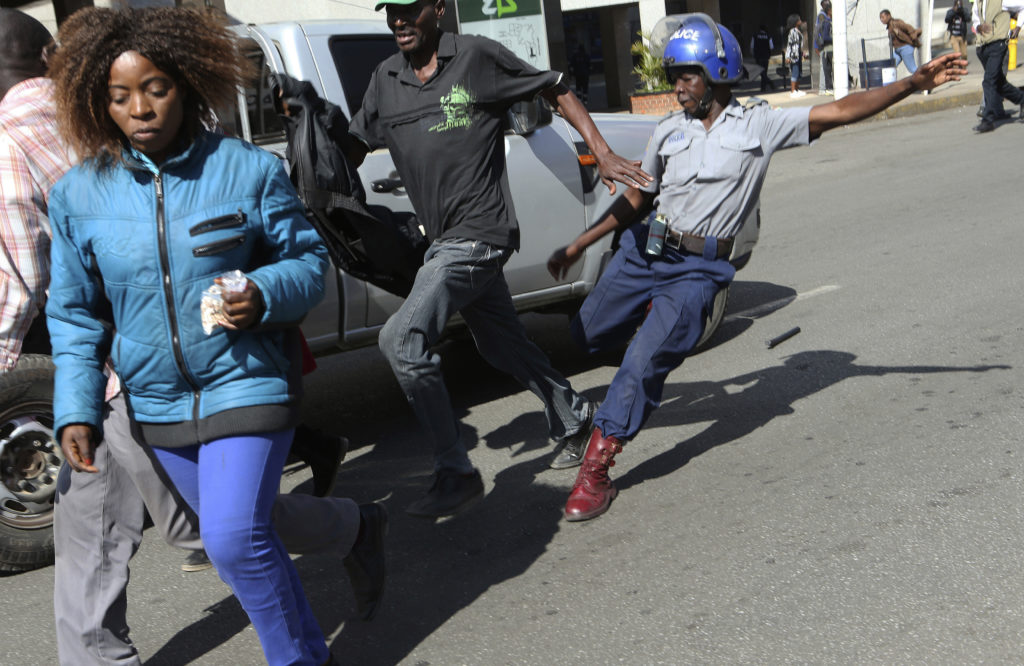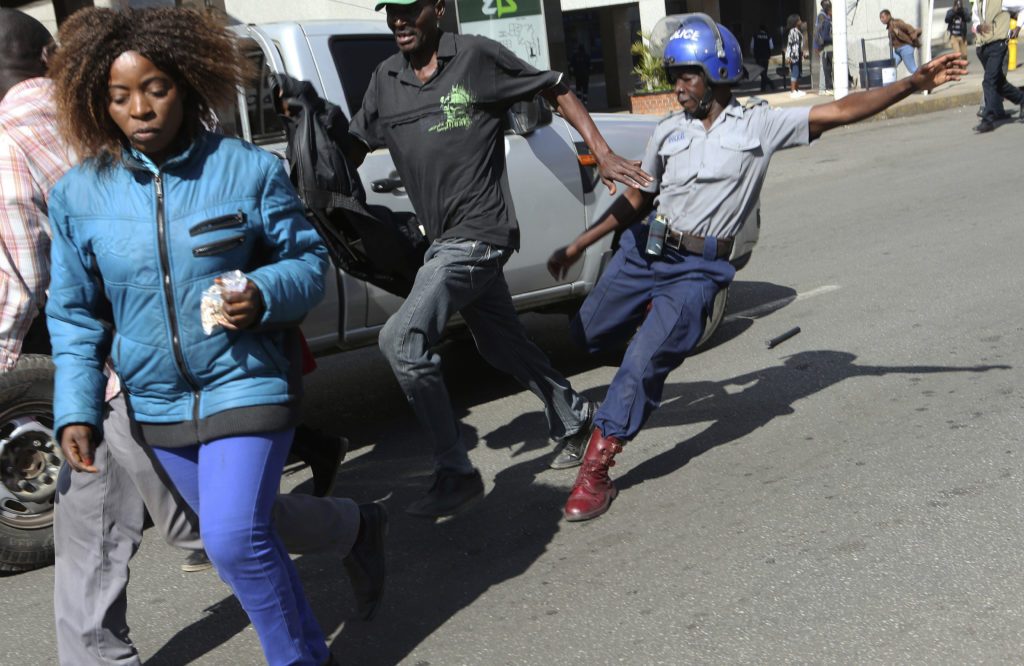Zimbabwe has seen an unprecedented increase in the levels of violence against women by the police especially during the sporadic demonstrations and city council’s unending running battles with vendors.
Disturbing images of women being beaten by police have gone viral on social media a lot this year raising concerns about the police’s respect for the rights of women.
The costs of this violence are impossible to summarize.

Gender-based violence, including sexual violence and rape as was the case in January where the army and police allegedly invaded homesteads and raped women and young girls during the crackdown which left more than a dozen people dead, results in lost productivity, lost opportunities, broken bones and broken lives.
A woman shot by police in Epworth during the January shutdown
If the world is to achieve its development goals, a critical precondition is the safety, equality and well-being of women and girls everywhere.
But too many fall through the cracks, particularly in crisis settings, as protection systems break down and abusers enjoy impunity as the case with the police.
Roughly one in every three women has experienced some form of abuse.
25 November, marked the start of the 16 Days of Action against Gender-based Violence, an annual international campaign that unites advocates, leaders and policymakers in the call to end all forms of violence against women and girls.
The campaign is now in its 28th year. Despite these decades of activism, the world remains unsafe for too many.
One in five women or girls will be assaulted by their partner this year.
For Zimbabwe, it is a different story. The police, which is supposed to protect citizens, has been indiscriminately beating people and judging by the pattern of attacks, it looks like women have been an easier target, seemingly to send a chilling warning.
Police Officers beat up a woman who had joined an MDC demonstration in Harare on 16 August 2019 (Lovejoy Mutongwiza/263Chat)
The attacks have raised the ire of various women’s groups but calls to have the police torn down, seem to be falling on deaf ears as the attacks happen regularly.
A recent study by UNFPA and the Johns Hopkins University, in collaboration with Victoria University, the University of Washington and Avenir Health, found that the total price tag to end gender-based violence and harmful practices in 132 priority countries is just $42 billion.
A woman being carried to the hospital after being beaten by Police.
Ekenia Chifamba, founder and Director of Shamwari YeMwanasika, girls and women’s rights lobby organisation, is of the view that there is a deliberate approach by the police to target women during demonstrations.
“In most instances, women and girls become the easiest targets to be it during war or other public civil actions, and this has been associated with the vulnerabilities that women have,” she said.
Chifamba noted that there is need to firmly speak against any act that brings physical and psychological harm to women and girls.
“As such police brutality should be viewed as clearly as it is,” she added.
a ZRP Officer beats up a woman outside MDC Party offices, Harvest House in Harare. She was part of the opposition party supporters who had gathered to listen to the Hope of The Nation Address by the party’s leader, Nelson Chamisa (Lovejoy Mtongwiza/263Chat
Although Zimbabwe is a signatory to the Southern African Development Community Gender and Development Protocol, the Zanu PF government has not respected its commitment to the enforcement of the protocol.
Linda Masarira, President of an opposition party, LEAD has been at the receiving end of police brutality especially during her days when she led anti-Mugabe and anti-ZanuPF demonstrations.
She was beaten tortured and incarcerated for merely raising her voice. She described police brutality against women as illegal.
“Brutal force on women by the police unacceptable and is totally illegal for the police to go hard on women who do not have weapons and not retaliating.
She noted this is an issue that political parties and women organisations need to start speaking about
“They need to stand firm together and start advocating for a peaceful environment especially within the CBD of Harare,’ she said.
Masarira called on awareness campaign programs where women are taught about their rights while adding that too often women are afraid to report the abuse they would have suffered at the hands of the police.
“They are afraid to report the police to the police because too often they end up taking more abuse after making reports. I have gone through that and I think women’s organisations need to up their game and start representing women’s interests,” Masarira said.
Leaders and policymakers must also move to end violence from happening in the first place.
This means working towards a more gender-equal world. It means educating people about their right to live free of violence and abuse. It means ending impunity and elevating the voices of women and girls.
Change is possible if enough people join the effort.

